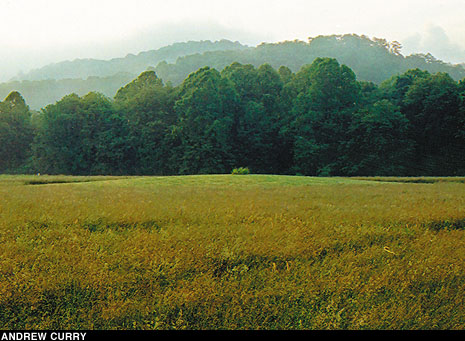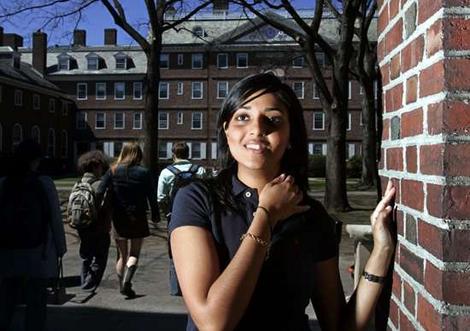
“Digitizing Cherokee Culture and Civil Rights History:
What Will it Mean When ‘Voiceless’ Cultures
(Finally!) have the Opportunity to Tell their Own Stories
on the Internet?”
A Talk by Dr. Timothy B. Powell
Senior Research Scientist
University of Pennsylvania Museum of Archaeology and Anthropology
Humanities Center, Room 133
Wednesday, May 3, 4:30
tim powell at the harvard humanities center. walking in i note the opulence of the center. i’m a touch late. tim’s talk has begun. welcome to the Digital Library of Georgia is on the screen. tim works with the cherokee. the tribe has casino money. its leaders want to lead the tribe to research and record and tell the stories of its culture. tim wants to help them do it.
with steve breyer at harvard law school in 1968 i taught the plight of the cherokee nation, ending in the trail of tears, as an example of the impotence of treaty and law in the face of overwhelming power and greed.
tim puts up and image of the first cherokee phoenix, printed in 1828, with the cherokee constitution written in cherokee on the newspaper’s front page. the cherokee were fully literate with their own language and alphabet. i see what he is projecting is on the web, galileo, an initiative of the university systems of georgia.
a people with money out to reclaim their history. they could tell it every way. i would love to help.
tim, would you consider joining in the submission of a plan to the Cherokee Nation to amplify the process of identity integration the leadership has begun. the plan would embody a cyberstrategy of training in the development of digital media skills and use of those skills to preserve and create a vibrant cherokee identity and history in cyberspace.
eon
tim responds
Tim Powell Says: May 6th, 2006 I would be honored to work with you on a cyberstrategy for helping the Eastern Band of the Cherokee Indians (EBCI) to train Cherokee students in digital technology so that they can write their own history. When I was at the reservation last month, I had a long talk with Lynn Harlan, the public relations officer for the EBCI, who expressed interest in working together on a project very similar to the one you describe. I am confident, therefore, that we will be able to partner with the tribe and to do some very important and exciting work that will fit with your vision “of training [students] in the development of digital media skills and use of those skills to preserve and create a vibrant cherokee identity and history in cyberspace.” Let me give you some background, so that you can begin thinking about the project. The EBCI are in the process of building a 300 million dollar K-12 school that will have digital classrooms. The Museum of the Cherokee Indian recently received a grant from the NEH/NSF to digitize a wealth of historical documents in the Cherokee alphabet (syllabary). The Digital Library of Georgia (DLG), where I worked for eleven years, has digitized more than two thousand historical documents related to Southeastern Native American culture and the Cherokee Phoenix. I also spoke to Toby Graham, the Director of the DLG, who said he would be interested in applying for a grant to create an infrastructure that would allow all of this material to be searched and integrated into one site. What I think the tribe would like to do is to partner with us to develop a strategy for training the students to use digital technology and to make this sprawling mass of material more readily available for use in the classroom. Lynn, who is on the museum board, also said that the museum has extensive holdings that she thought they might be willing to digitize. My dream would be to get the students involved in all phases of the project– to teach them to tag documents in XML, to digitally photograph artifacts and display them using QTVR, and then to write narratives weaving all of these digital resources into a story about how the EBCI escaped the Trail of Tears, endured a century of hardship, and is now a thriving community taking control of its own history and identity. Thank you so much for your generous offer, Tim Timothy B. Powell Senior Research Scientist University of Pennsylvania Museum of Archaeology and Anthropology
